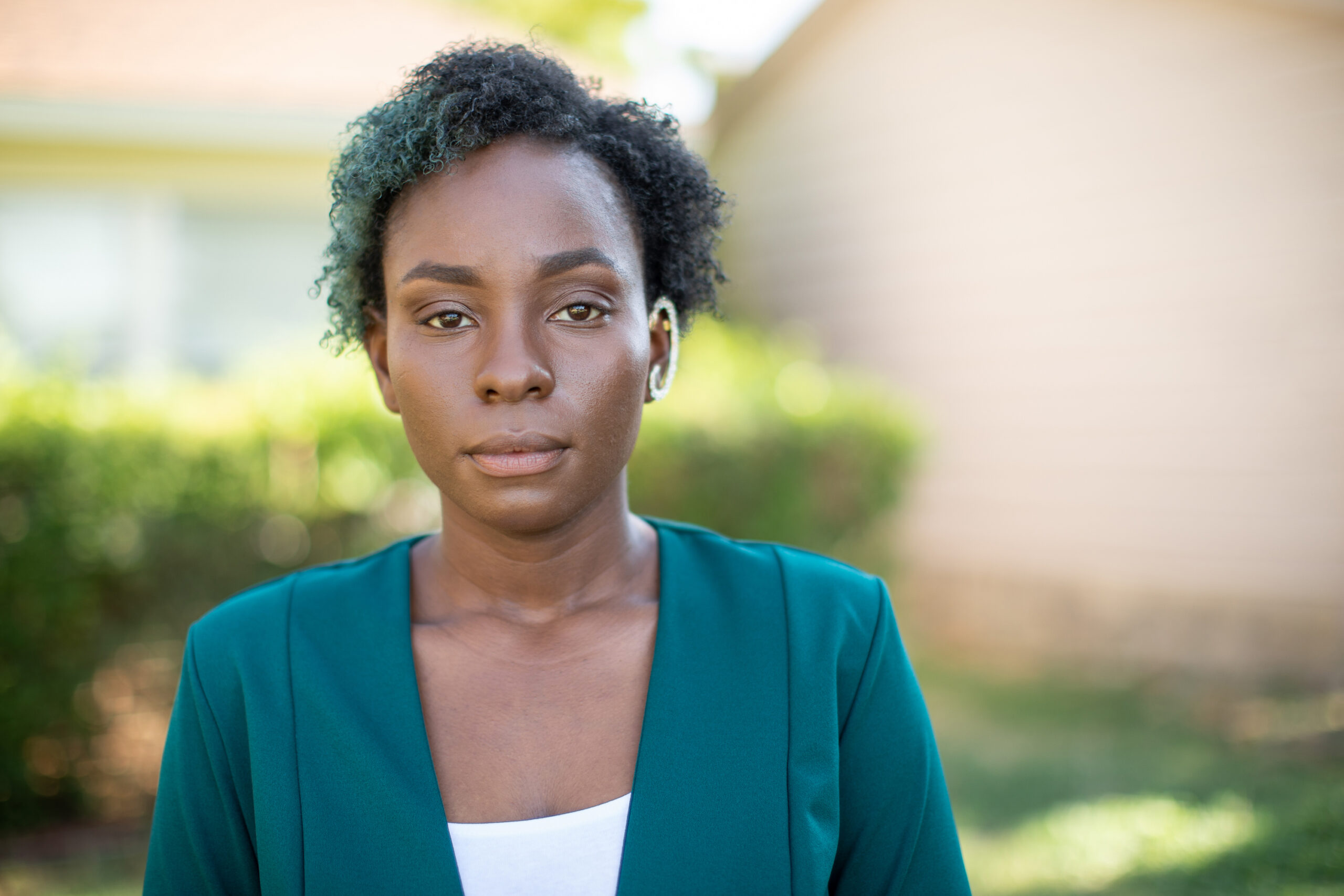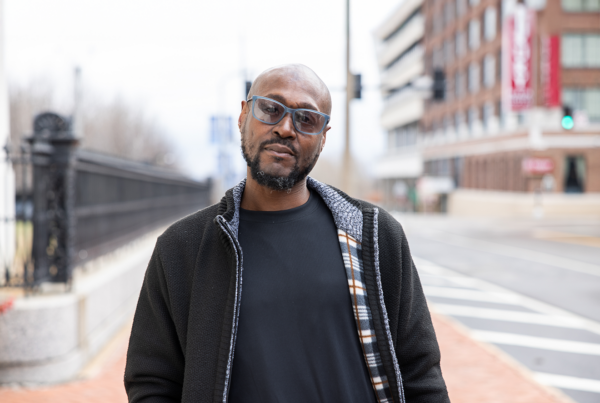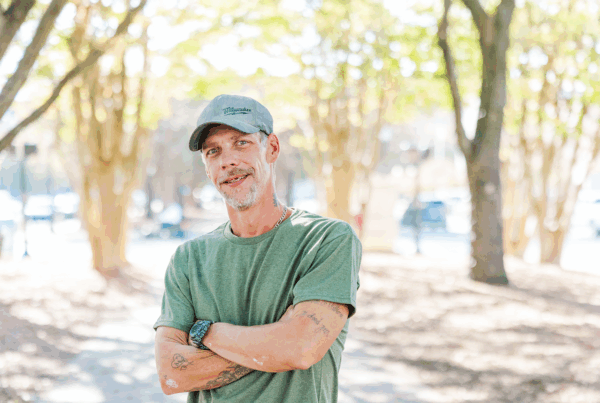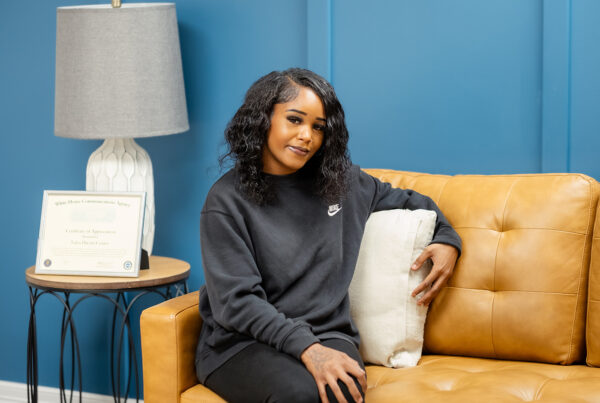It was a chilly spring day in early April when Nicole Rodgers, a 31-year-old Black medical social worker in Tulsa, saw the letter sitting in her mailbox. It was an advertisement from a criminal defense attorney promoting his services. Nicole figured it was junk mail. After all, she never had any run-ins with the law and she spent much of her free time helping people of color impacted by the criminal justice system.
But as she continued reading it, she came across a startling sentence: “…it has come to my attention that you have been recently charged with a felony criminal offense. This means that you may have a warrant for your arrest!”
The letter didn’t include any additional information about the alleged charge. Stunned and confused, the single mother of three children wondered if it was sent by mistake or was maybe a scam. Worst case scenario, she figured, this was just a big misunderstanding that could easily be resolved.
She was wrong.
Unbeknownst to Nicole, the state of Oklahoma had been building a case against her since September of 2021 after an eyewitness said she fit the description of a woman who allegedly robbed a store employee at knife point.
Less than seven months later, prosecutors charged Nicole with felony robbery with a dangerous weapon and a judge issued a warrant for her arrest.
After she finished reading the letter, Nicole began tackling the issue head on. She realized her first step was to learn what the criminal felony charge was about. She reached out to people she knew within the justice system and courthouse for help. She hadn’t known criminal charges could be filed against someone without their knowledge. The first call she made was to a friend who happened to be an attorney.

“I can’t find the affidavit and I don’t know how the charge happened,” Nicole recalled saying.
What transpired in the days and months afterwards underscores the long-lasting and multifaceted ways a person’s personal, professional and family life can be affected after a criminal charge is issued against them and even after it is dismissed in court.
“The system is set up in a way for people of color and women to be taken advantage of,” she said. “People are sitting in jail away from their families.”
Nicole’s experience also illustrates how dizzying and confusing it can be to navigate the criminal justice system even for people who know how it works, are aware of available resources and have people advocating on their behalf.
“That advertisement in the mail saved me from the what-ifs that could have happened,” she said. “How is somebody charged with a crime like this and has no idea? I wish I was able to tell my side of the story to lead investigators and prosecutors before the charge was issued against me.”
It took Nicole several days before she was able to receive a copy of the affidavit. When she finally read it, she was taken aback by the severity of the crime she was accused of committing. But even more unbelievable, she said, was the evidence the lead investigator used to establish probable cause.
Investigators interviewed a man they alleged was an accomplice to the crime. That man, who Nicole says she never met, identified her as the suspect after investigators showed him a photo of Nicole’s driver’s license. The alleged accomplice also provided investigators with a phone number claiming it belonged to the suspect whom he only knew as “Nikki,” according to the affidavit. That phone number happened to be an old number Nicole stopped using almost two years ago.
She gathered as much evidence to show that the number no longer belonged to her and that she was nowhere near the location at the time the incident took place and made a call to a courthouse social worker from the public defender’s office to see if it would be possible to recall the warrant. Her request was denied, which meant that it was only a matter of time before she would have to voluntarily surrender herself to law enforcement. It was like a punch to the gut.
“I had to ensure my children were taken care of and that my employment would be secure. My children mean the world to me and I needed to make sure they would be okay,” she said.
“If I lost my job I wouldn’t have the capability to support my family. I [also] wanted to make sure bills to my house, care and food were covered.”
But there was another problem: the judge set her bail at $50,000. Nicole was shocked and confused at the high amount. It was not affordable for her and she had no prior arrests.
Much was at stake if she couldn’t afford to post bond. Nicole risked losing the opportunity to complete an internship for her masters degree program, the house she was trying to buy, her job and custody over her son. Languishing behind bars for an uncertain amount of time for a crime she did not commit was unfathomable. That her freedom was dependent on whether she could afford bail made it worse.
“The statistics of a Black woman being arrested and sent to prison made me afraid,” she said.

Oklahoma has one of the highest female incarceration rates in the country. Tulsa County also has a history of high incarceration rates related to its pretrial population. Since 2010, prosecutors in the Tulsa County District Court have increasingly charged people with felonies and soared up bail amounts, according to a report from the Vera Institute Justice, a nonprofit research group.
It took the courthouse social worker, The Bail Project and a public defender to successfully convince a judge to lower Nicole’s bond from $50,000 to $10,000. This would allow The Bail Project to post her bail.
Nicole couldn’t help but think of other women of color in similar situations who didn’t have access to the type of resources as she did.
“The system is set up in a way for people of color and women to be taken advantage of,” she said. “People are sitting in jail away from their families.”
A few weeks later, on April 21, Nicole was arrested and taken into jail where she was stripped naked and searched.
When she was released on bail a little over 24 hours later, she returned home to news that her ex had filed an emergency custody order for her son.
“My family didn’t want to tell me because I was already traumatized by what happened when I was in jail that day,” she said. “I broke down and cried because it felt like nobody was listening. I’ve never been separated from my son. I’ve never been put in a situation like that before.”
Two days later at her first arraignment she presented the judge with a “Pauper’s Affidavit” – an application that asks a judge to waive court costs for those who have financial hardships. Nicole said the judge denied her request and asked her to pull more resources together to find a private attorney. Before she left the courtroom, the judge told her one more thing: “Don’t go out and commit a crime trying to get the funds together,” the judge said according to Nicole.
“I was presumed guilty, rather than innocent,” Nicole said.
Nicole didn’t let the judge’s comment bring her down. She didn’t want to lose the life she worked so hard to build. She managed to find a lawyer who helped her regain custody of her son and a private attorney who helped fight her criminal felony charge.
At court, Nicole shared evidence that proved that she was not near the store at the time where the robbery at knife point took place. In fact, she had receipts that showed she was getting a COVID-19 test and was withdrawing money from an ATM around the same time the offense took place.
In late July, her charges were dismissed without prejudice. That prosecutors could choose to refile against her looms large over her head. She often thinks that if The Bail Project had not stepped in to help lower her bail and post her bond, that she would have likely spent three months behind bars while waiting for a resolution.
Her mental health has been impacted as a result. She attends weekly therapy sessions to work on managing feelings of paranoia and has been prescribed anti-anxiety and antidepressant medications.
“I save all receipts including grocery or gas receipts not to manage money, but to have it just in case I have to prove my whereabouts. I now take a picture of the receipt, scan the copy and email them to myself for additional storage,” she said, adding: “I’m nervous when I see an unmarked police car, fearing they’re watching me or there to arrest me again.”
As tight as her grip was on the life she once had, things are different now. Up until recently she was required to have a chaperon at work when she visited clients at hospice in home health. Her internship supervisors at school, meanwhile, told her they’d might revoke her participation in the program. After providing them with additional information regarding the outcome of her case, they ultimately allowed her to continue her internship, however, the uncertainty she faced took a toll on her wellbeing.
Nicole expects her struggles to continue until her charge is expunged. But doing so could be costly and time consuming.
Despite it all, she says her experience has reaffirmed her passion for helping women impacted by the justice system, especially when it comes to issues related to probable cause and cash-bail reforms.
“No way you can fight for yourself when you’re sitting in jail,” she said. “Even if you’re innocent.”
Thank you for reading. The Bail Project is a 501(c)(3) nonprofit organization that is only able to provide direct services and sustain systems change work through donations from people like you. If you found value in this article, please consider supporting our work today.











